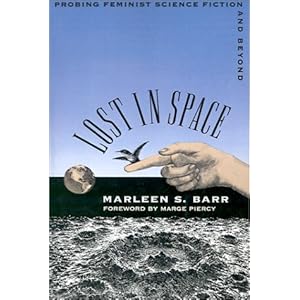 |
| Original cover User: El-luismi Source: Wikimedia Commons |
Orlando is a novel by Virginia Woolf that takes the idea of being a man and woman in one lifetime (or several lifetimes) and puts it to good use. The title character, Orlando, is a nobleman living in England during the Elizabethan
period. He is content with his life except for the loneliness, having been engaged,
married, or assumed to be engaged to four women in his lifetime. When he meets
a Russian princess, he thinks that life has finally rewarded him with his one
true love. Unfortunately, the princess does not reciprocate and leaves Orlando.
Distraught, Orlando turns to his other passion: writing. He takes writing
seriously, writing plays, poems, and stories, all odiously long. Away in his
country manor he writes and writes, until he is visited by a famous writer
Nicolas Green. Green reads Orlando's work and writes up a poem to satire it,
thus making Orlando hate humans and turn even more inward while at his country
estate.
Later on, Orlando visits other European countries, encountering
gypsies as he does so. One night, he has a strange dream, and as a by-product,
becomes a woman. There is no shocking reveal or loathing from Orlando at having
turned into a woman, only acceptance. With his/her new worldview, Orlando comes
to see how different her life will be as a woman. Her return to London is a
lesson in women's rights, because she realizes that she can no longer own her
land, manage her finances, or vote. Small things come to Orlando's attention
now that she is a woman, like the fact that men cannot cry in front of an
audience. A man falls in love with her, and when she refuses him, the man
begins to cry, and though Orlando knows from experience that men cry just as
women do, that they are not supposed to openly weep, and so she is shocked at
the emotion display of her thwarted lover.
 |
| "Orlando as a boy" paiting by Cornelious Nuie (1650)User: El-luismi Source: Wikimedia Commons |
Orlando life
spans many generations. He/she goes into deeps slumbers every few years, almost
like a bear hibernating, and this (or some other type of magic) prolongs
Orlando's life from the 1500's, taking the story all the way to the 1920's.
As a man,
Orlando never questioned his privilege or sexuality (believing himself to be
inherently heterosexual and powerful). Yet, as a woman, Orlando's eyes open up
to see that the world is often one-sided in its treatment of women. Orlando the
man fought in wars and dueled men to the death, but he/she is aghast when a gentleman
treats her like a dainty flower, as she feels much more capable than she is
given credit for, not just as a woman, but as an equal division of humanity.
Woolf, Virginia. Orlando: A Biography. New York: Harcourt Brace & Company, 1956.
Print.

